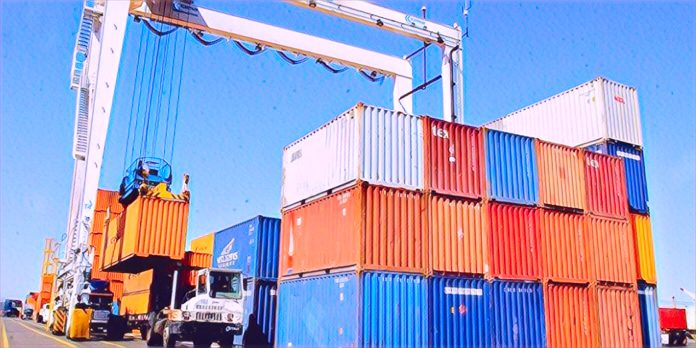Key Points
-
Nigeria spent N3.53 trillion on raw material imports in H1 2025.
-
70% of manufacturing inputs still sourced abroad, says RMRDC.
-
Stakeholders blame policy failure and weak local capacity.
Nigeria’s manufacturing industry is becoming more reliant on imported raw materials, undermining the government’s long-standing import substitution policy.
Data from the National Bureau of Statistics show that raw material imports jumped 19.7% year-on-year to N3.53 trillion in the first half of 2025, up from N2.95 trillion in the same period last year.
The imports include sugar and additives for confectionery and lubricants, sheets for veneering, hides and skins for leather products, gypsum for cement, and binders for paint production.
These materials mostly came from Brazil, the United States, the United Kingdom, France, China, Germany, and Tanzania.
Manufacturers say the rising imports contradict the government’s goal of strengthening local production, while putting more pressure on the nation’s foreign exchange reserves.
Import substitution is meant to replace imported goods with locally produced alternatives, conserve forex, and create jobs.
But analysts say energy costs, limited processing capacity, and the weak naira have made local production less competitive.
70% of manufacturing inputs imported, says RMRDC
The Director-General of the Raw Materials Research and Development Council (RMRDC), Prof. Nnanyelugo Ike-Muonso, said about 70% of the inputs used in Nigeria’s manufacturing sector still come from abroad.
He described it as a “major structural weakness” that limits job creation and increases production costs.
The situation, he added, has become unsustainable, driven by exchange rate volatility and poor industrial coordination.
Ike-Muonso said Nigeria must reduce its foreign raw material imports by 60% in the next five years to reposition its economy.
He revealed that the federal government recently approved tax incentives for manufacturers that use locally sourced materials in production.
“Manufacturers who research, develop, and patronize local materials will pay significantly lower taxes,” he said. “This will attract private investment and support technology-driven manufacturing.”
He urged the creation of industrial hubs around key resource zones and called for more collaboration between research institutions and manufacturers to strengthen innovation.
Manufacturers cite high energy costs and weak infrastructure
The Director-General of the Manufacturers Association of Nigeria (MAN), Segun Ajayi-Kadir, said the heavy reliance on imports is linked to the high cost of energy, currency depreciation, and insecurity.
According to him, manufacturers spent about N6.64 trillion on imported raw materials in 2024, and many have abandoned their backward integration plans due to rising costs.
Ajayi-Kadir said local materials are sometimes more expensive than imported ones, making it difficult to encourage local sourcing.
“Locally sourced raw materials are supposed to be cheaper,” he said.
“But in some cases, imported ones cost less. How do you expect manufacturers to buy local?”
He noted that the African Continental Free Trade Area could help Nigeria source raw materials from within the continent for export production, but added that the government must first fix local structural barriers and support value addition.
Former MAN president, Mansur Ahmed, also called for stronger collaboration between government and industry players.
“We need to move our manufacturing from dependency on imported inputs to a system built on local strength,” he said.
Experts call policy failure a national concern
President of the Lagos Chamber of Commerce and Industry (LCCI), Gabriel Idahosa, said the government’s import substitution plan has largely failed.
He explained that Nigeria’s continued dependence on imported inputs stems from the lack of raw material availability and weak technological capacity.
“Some manufacturers simply can’t backward integrate because they don’t have access to raw materials or technology,” Idahosa said.
“For example, a car manufacturer in Nigeria still imports engines and tires. They only assemble the parts locally.”
Dr. Muda Yusuf, CEO of the Centre for the Promotion of Private Enterprise (CPPE), said effective import substitution could still transform the economy if backed by consistent policy.
“The government needs to encourage backward integration,” he said. “That will lower production costs and expand value chains.”
Despite the challenges, RMRDC’s Ike-Muonso pointed to Nigeria’s potential, citing over 120 commercially viable solid minerals and abundant agricultural resources.
He said the key missing elements are strategic coordination and technology adoption.
He highlighted the RMRDC’s Research and Demonstration Plant Complex in Abuja, which houses more than 50 pilot plants designed to convert local materials like cassava, talc, and shea into finished products.
The National Assembly recently passed a bill mandating that no raw material be exported unless at least 30% of its value is added locally.
The move aims to reduce the export of unprocessed commodities and drive domestic industrial growth.



